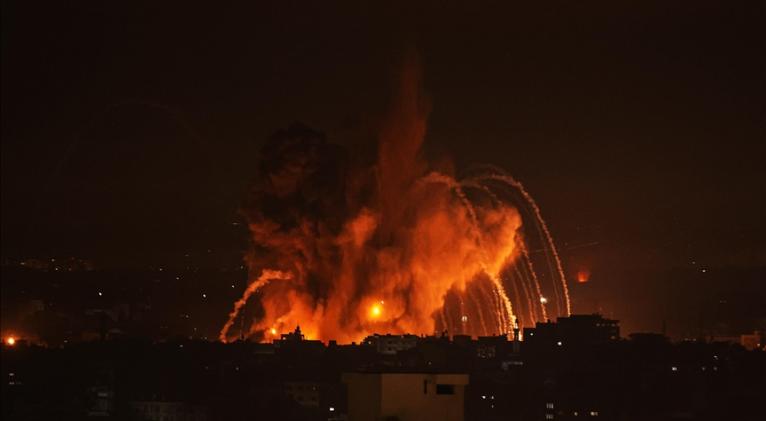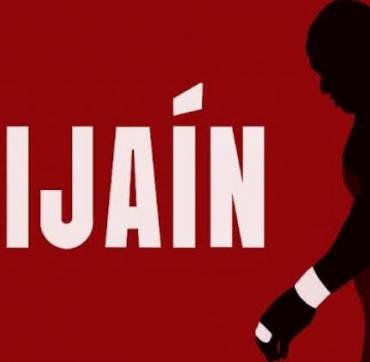Shrinking support: How Israel’s allies have changed their tune on Gaza war
especiales

The West’s pro-Israel stance during its ongoing war on Gaza has undergone a visible shift in recent weeks, with leaders pushing more for a cease-fire, addressing the humanitarian crisis and raising concerns over a potential ground assault in Rafah.
The change in position, which brings them closer to what other countries like Türkiye have been saying, comes as civilian casualties continue to mount in Gaza, where Israel’s relentless bombing has killed nearly 29,000 Palestinians, an overwhelming majority of them women and children.
The war has displaced 85% of Gaza’s population and led to severe shortages of food, clean water and medicine, while 60% of the enclave’s infrastructure has been damaged or destroyed, according to the UN.
Israel is facing genocide allegations at the International Court of Justice (ICJ), with the top UN court having ordered six provisional measures on South Africa’s application and saying that the risk of genocide being committed is plausible.
As Israel now plans to launch a ground operation in Rafah, the southern Gaza region sheltering over 1.4 million displaced Palestinians, several countries have expressed concerns that it could lead to a humanitarian catastrophe and ramped up calls for an immediate cease-fire.
US
The US, Israel’s biggest military and diplomatic ally, has hardened its stance in the past few weeks.
Both President Joe Biden and Secretary of State Antony Blinken rushed to Israel after the Oct. 7 Hamas attacks, expressing strong solidarity and supporting Israel’s “right to defend itself.”
Biden, during his visit to Tel Aviv, said: “I come to Israel with a single message: You are not alone. You are not alone. As long as the United States stands – and we will stand forever – we will not let you ever be alone.”
Washington has financially, militarily and politically backed Israel’s deadly war, with multibillion-dollar aid packages, material support and several vetoes for cease-fire resolutions at the UN.
But as the war drags on in its fifth month and the November presidential election inches closer for Biden, growing public pressure over the humanitarian disaster inflicted on Palestinians seems to be causing a rethink in Washington.
In December, Biden said at an event that Israel was losing international support because of its “indiscriminate bombing” of Gaza.
He also called for Prime Minister Benjamin Netanyahu to make changes within his government.
Most recently, in a phone call with Netanyahu on Thursday, Biden reiterated his stance against a military operation in Rafah, saying it “should not proceed without a credible and executable plan for ensuring the safety of and support for the civilians.”
Germany
Another staunch supporter of Israel, Germany, also seems to be tweaking its policy because of the looming Rafah operation.
After the Oct. 7 attacks, Chancellor Olaf Scholz was the first European leader to land in Israel.
“The responsibility we bear as a result of the Holocaust makes it our duty to stand up for the existence and security of the state of Israel,” he said at the time after meeting Netanyahu.
Germany has been reluctant in calling for a cease-fire, abstaining in UN votes, and even said it will intervene in Israel’s favor at the ICJ.
But just this month, Berlin has spoken out at least twice against the Rafah operation.
“Gaza is on the brink of collapse. In Rafah, 1.3 million people are crammed into a small area in the most appalling conditions,” Foreign Minister Annalena Baerbock said in a statement as she left for her Feb. 14-15 visit to Israel, her fifth since last October.
“Under these circumstances, an offensive by the Israeli forces on Rafah would send the humanitarian situation spiraling completely out of control. For the people in Rafah cannot simply disappear into thin air.”
The statement also said that Baerbock “will make the case for a political process leading to another humanitarian pause,” in order to pave the way for “negotiations on a permanent cease-fire.”
France
France, another of Israel's European ally, has firmly opposed to an impending Israeli attack on the city of Rafah.
President Emmanuel Macron openly called for a cease-fire in a BBC interview on Nov. 10, saying there is “no reason” for babies, women and the elderly to be killed, and urging Israel to stop its assault.
In a phone with Netanyahu, Macron said the attack “could only lead to a humanitarian disaster of a new magnitude, as to any forced displacement of populations, which would constitute violations of international humanitarian law and would pose an additional risk of regional escalation.”
In November, Macron made a call for cease-fire in Gaza, the move which was criticized by opposition who said that he raised voice after 10,000 Palestinians had been killed.
Macron has also criticized the Israeli forces and their military strategy, and demanded that the Israeli forces should “define more precisely” their objectives in Gaza, and said that the `proper response` was not “to bomb the entirety of civilian capabilities."
UK
Prime Minister Rishi Sunak was in Tel Aviv within days of the Oct. 7 attacks to pledge the UK’s full support.
“I am proud to stand here with you in Israel’s darkest hour as your friend, who will stand with you in solidarity, who will stand with your people, and we also want you to win,” he said at a press conference with Netanyahu.
The UK has since been a key backer of Israel’s devastating war, continuing arms sales, rejecting calls for a cease-fire and voting against UN resolutions.
Last month, it also joined the US and several other countries in halting funding for the UN agency for Palestinian refugees, UNRWA, a move that many have warned imperils millions in Gaza.
However, the Rafah operation plan has drawn concerns from London as well.
In a phone call with Netanyahu on Thursday, he said the UK was “deeply concerned about the loss of civilian life in Gaza and the potentially devastating humanitarian impact of a military incursion into Rafah,” according to a government readout.
“He reiterated that the immediate priority must be negotiating a humanitarian pause to allow the safe release of hostages and to facilitate considerably more aid going to Gaza, leading to a longer-term sustainable ceasefire,” the statement said.
Canada and Australia
Earlier this week, the prime ministers of Australia, Canada, and New Zealand issued a joint statement expressing “grave concern” over Israel’s planned military operation in Rafah.
They called for an immediate humanitarian cease-fire, warning that an operation would be “catastrophic” and urging Tel Aviv “not to go down this path.”
The three countries also said that they remained steadfast in their commitment to a two-state solution, with the creation of a Palestinian state alongside Israel.
The statement marked a shift from Canada’s policies, which was among the countries expressing support for “the need for Israel to defend itself in accordance with international law.”
In an Oct. 8 statement, Prime Minister Justin Trudeau said: “To our Israeli friends, Canadians stand with you. The government of Canada stands ready to support you – our support for the Israeli people is steadfast.”
In December, however, Trudeau came out to say that Israel’s refusal to agree to a cease-fire has Canada and its allies “increasingly concerned” that Tel Aviv is damaging chances for a long-term peace.
In the long run, it may even erode support for Israel, Trudeau said in a year-end interview with the Canadian Broadcasting Corporation.
On Thursday, Trudeau had a phone call with Benny Gantz, a minister in Netanyahu’s War Cabinet, which he used to convey his “concern around Israel’s planned offensive in the southern Gaza city of Rafah and the severe humanitarian implications for all civilians taking refuge in the area,” according to a Canadian government statement.
He said the “protection of civilians is paramount and a requirement under international humanitarian law,” while also reiterating “the importance of renewing efforts and engaging all regional actors toward a two-state solution.”
Coming to Australia, it was also among the countries advocating for Israel’s right to defend itself.
“We stand with Israel and reiterate its right to defend itself,” Foreign Minister Penny Wong said in a statement on Oct. 14.
“President Biden has called on Israel to operate by the rules of war in its response to Hamas attacks - we join him and others in that call,” she said.
By November, Canberra was urging Israel to stop the killing of civilians and warned that Tel Aviv faces “grave risks” if the war spreads.
Most recently, in an interview with the Australian Broadcasting Corporation, Wong pointed out that Australia was among 153 countries that “voted for immediate humanitarian cease-fire.”
“We are deeply concerned about the loss of life and the diminishing safe space for Palestinians in Gaza,” she said.
Wong also referred to the joint statement with Canada and New Zealand, which she said conveyed “how alarmed we are at the diminishing safe space for Palestinians, and again calling on Israel to ensure that it protects civilian lives.”
Türkiye’s consistent approach
Among the Arab and Muslim world, Türkiye has been a particularly vociferous opponent of Israel’s actions in Gaza.
President Recep Tayyip Erdogan has been vocal against Israel’s onslaught, communicating with leaders around the world to push for peace and put an end to the civilian casualties.
In October, he called on all states to “raise their voices for a cease-fire to be established in Gaza as soon as possible.”
He has also been critical of the US, saying the country has a “historical responsibility” when it comes to Israel and its actions against Palestinians.
“During a meeting with (US President Joe) Biden, I reminded the US of its historical responsibility. How can the world shout louder about the need to stop Israel?” he said.
He recently reiterated that efforts for peace “unfortunately remain fruitless due to a negative approach of the US”.
This week, at a joint news conference with his Egyptian counterpart Abdel Fattah al-Sisi in Cairo, he said the forced depopulation of Gaza is “unacceptable,” and that attempts to “exile the people of Gaza” from their lands are “null and void.”














Add new comment